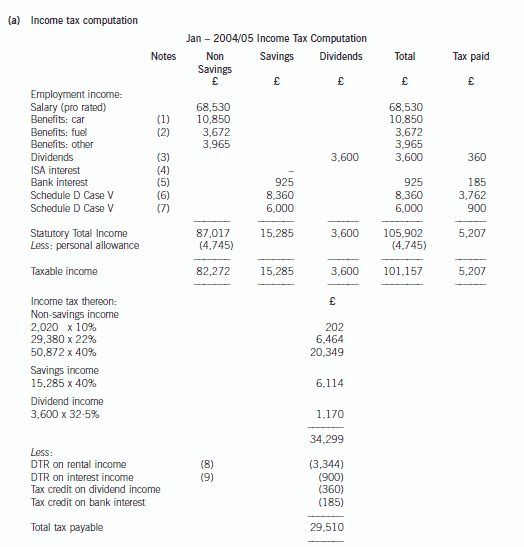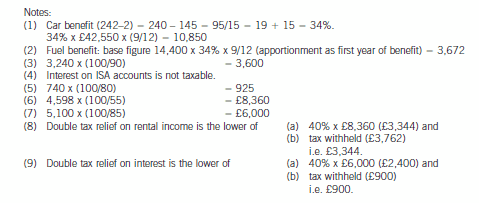听说ACCA考试挺难,是真的吗?
发布时间:2019-07-21
很多同学一听到ACCA考试科目一共有14门在加上全英文的,就觉得考试很难。那么ACCA难考吗?ACCA全球通过率高吗?通过率是多少?报名ACCA需要准备什么材料?这些问题对于一个准备报考ACCA的小伙伴来说一定是在心里徘徊已久的问题了。为此小编特地整理了如下内容。
一、ACCA考试难度
ACCA是全英文考试,教材有非常厚,有几十本,考试科目也非常多,有13门。这些因素凑在一块,无疑不在加深ACCA的难度。不过,ACCA考试的难度是以英国大学学位考试的难度为标准。具体而言,第一(f1-f3)、第二部分(f4-f9)的难度分别相当于学士学位高年级课程的考试难度,第三部分的考试相当于硕士学位最后阶段的考试。
第一部分的每门考试只是测试本门课程所包含的知识,着重于为后两个部分中实务性的课程所要运用的理论和技能打下基础。
第二部分的考试除了本门课程的内容之外,还会考到第一部分的一些知识,着重培养学员的分析能力。
第三部分的考试要求学员综合运用学到的知识、技能和决断力。不仅会考到以前的课程内容,还会考到邻近科目的内容。
二、ACCA全球单科通过率
ACCA全球单科通过率基本在30-40%左右,中国学员通过率为50-60%。
ACCA作为国际注册会计师,逐渐受到了越来越多财务人士的认可。ACCA证书的含金量比较高,但是它的报考门槛却不高,凡具有国家教育局认可的大专以上学历即可报名参加考试。
三、在线注册报名考试的时候,需要准备哪些资料呢?
1.学历/ 学位证明(高校在校生需提交学校出具的在校证明函及第一年所有课程考试合格的成绩单)的原件、复印件和译文;外地申请者不要邮寄原件,请把您的申请材料复印件加盖公司或学校公章,或邮寄公证件既可。
2.身份证的原件、复印件和译文;或提供护照,不需提交翻译件。
3.两张张两寸照片;(黑白彩色均可)
4.注册报名费(银行汇票或信用卡支付),请确认信用卡可以从国外付款,否则会影响您的注册返回时间;如果不能确定建议您用汇票交纳注册费。(信用卡支付请在英文网站上注册时直接输入信用卡详细信息,英国总部收到您的书面注册材料后才会从您的信用卡上划帐)。
综上所述就是关于ACCA问题的解答,希望对于各位小伙伴有用,小编将持续为大家更新ACCA相关内容。
下面小编为大家准备了 ACCA考试 的相关考题,供大家学习参考。
(b) (i) Advise Andrew of the income tax (IT) and capital gains tax (CGT) reliefs available on his investment in
the ordinary share capital of Scalar Limited, together with any conditions which need to be satisfied.
Your answer should clearly identify any steps that should be taken by Andrew and the other investors
to obtain the maximum relief. (13 marks)
(b) (i) Andrew may be able to take advantage of tax reliefs under the enterprise investment scheme (EIS) provided the
necessary conditions are met. The conditions that have to be satisfied before full relief is available fall into three areas,
and broadly require that a ‘qualifying individual’ subscribes for ‘eligible shares’ in a ‘qualifying company’.
‘Qualifying Individual’
To be a qualifying individual, Andrew must not be connected with the EIS company. This means that he should not be
an employee (or, at the time the shares are issued, a director) or have an interest in (i.e. control) 30% or more of the
capital of the company. These conditions need to be satisfied throughout the period beginning two years before the share
issue and three years after the ‘relevant date’. Where the relevant date is defined as the later of the date the shares were
issued and the date on which the company commenced trading.
Andrew does not intend to become an employee (or director) of Scalar Limited, but he needs to exercise caution as to
how many shares he subscribes for. If only three investors subscribe for 100% of the shares, each will hold 33% of the
share capital. This exceeds the 30% limit and will mean that EIS relief (other than deferral relief) will not be available.
Therefore, Andrew and the other two investors should ensure not only that the potential fourth investor is recruited, but
that s/he subscribes for sufficient shares, such that none of them will hold 30% or more of the issued share capital, as
only then will they all attain qualifying individual status.
‘Eligible shares’
Qualifying shares need to be new ordinary shares which are subscribed for in cash and fully paid up at the time of issue.
The shares must not be redeemable for at least three years from the relevant date, and not carry any preferential rights
to dividends. On the basis of the information provided, the shares of Scalar Limited would qualify as eligible shares.
‘Qualifying Company’
The company must be unquoted, not controlled by another company, and engaged in qualifying business activities. The
latter requires that the company engage in a trading activity, which is carried on wholly or mainly in the UK, throughout
the three years following the relevant date. While certain trading activities, such as dealing in shares or trading in land,
are excluded, the manufacturing trade Scalar Limited proposes to carry on will qualify.
However, it is also necessary for at least 80% of the money raised to be used for the qualifying business activity within
12 months of the relevant date and the remaining 20% to be so used within the following 12 months. Andrew and the
other investors will thus have to ensure that Scalar Limited has not raised more funds than it is able to employ in the
business within the appropriate time periods.
Reliefs available:
Andrew can claim income tax relief at 20% income tax relief on the amount invested up to a maximum of £200,000
in any one tax year. The relief is given in the form. of a tax reducing allowance, which can reduce the investor’s income
tax liability to nil, but cannot be used to generate a tax refund. If the investment is made prior to 6 October in the tax
year, then 50% of the amount invested (up to a maximum of £25,000) can be treated as having been made in the
previous tax year.
Any capital gains arising on the sale of EIS shares will be fully exempt from capital gains tax provided that income tax
relief was given on the investment when made and has not been withdrawn. If the EIS shares are disposed of at a loss,
capital losses are still allowable, but reduced by the amount of any EIS relief attributable to the shares disposed of.
In addition, gains from the disposal of other assets can be deferred against the base cost of EIS shares acquired within
one year before and three years after their disposal. Such gains will, thus, not normally become chargeable until the EIS
shares themselves are disposed of. Further, for deferral relief to be available, it is not necessary for the investment to
qualify for EIS income tax relief, i.e. deferral is available even where the investor is not a qualifying individual. Thus,
Andrew could still defer the gain arising on the disposal of the residential property lease made in order to raise part of
the funds for his EIS investment, even if no fourth investor were to be found and his shareholding were to exceed 30%
of the issued share capital of Scalar Limited. Does not require the existence of income tax relief in order to be claimed.
Withdrawal of relief:
Any EIS relief claimed by Andrew will be withdrawn (partially or fully) if, within three year of the relevant date:
(1) he disposes of the shares;
(2) he receives value from the company;
(3) he ceases to be a qualifying individual; or
(4) Scalar Limited ceases to be a qualifying company.
With regard to receiving value from the company, the definition excludes dividends which do not exceed a normal rate
of return, but does include the repayment of any loans made to the company before the shares were issued, the provision
of benefits and the purchase of assets from the company at an undervalue. In this regard, Andrew and the other
subscribers should ensure that the £50,000 they are to invest in Scalar Limited as loan capital is appropriately timed
and structured relative to the issue of the EIS shares.
2 Assume that today’s date is 1 July 2005.
Jan is aged 45 and single. He is of Danish domicile but has been working in the United Kingdom since 1 May 2004
and intends to remain in the UK for the medium to long term. Although Jan worked briefly in the UK in 1986, he
has forgotten how UK taxation works and needs some assistance before preparing his UK income tax return.
Jan’s salary from 1 May 2004 was £74,760 per annum. Jan also has a company car – a Jaguar XJ8 with a list price
of £42,550 including extras, and CO2 emissions of 242g/km. The car was available to him from 1 July 2004. Free
petrol is provided by the company. Jan has other taxable benefits amounting to £3,965.
Jan’s other 2004/05 income comprises:
£
Dividend income from UK companies (cash received) 3,240
Interest received on an ISA account 230
Interest received on a UK bank account 740
Interest remitted from an offshore account (net of 15% withholding tax) 5,100
Income remitted from a villa in Portugal (net of 45% withholding tax) 4,598
The total interest arising on the offshore account was £9,000 (gross). In addition, Jan has not remitted other
Portuguese rental income arising in the year, totalling a further £1,500 (gross).
Jan informs you that his employer is thinking of providing him with rented accommodation while he looks for a house
to buy. The accommodation would be a two bedroom flat, valued at £155,000 with an annual value of £6,000. It
would be made available from 6 August 2005. The company will pay the rent of £600 per month for the first six
months. All other bills will be paid by Jan.
Jan also informs you that he has 25,000 ordinary shares in Gilet Ltd (‘Gilet’), an unquoted UK trading company. He
has held these shares since August 1986 when he bought 2,500 shares at £4.07 per share. In January 1994, a
bonus issue gave each shareholder nine shares for each ordinary share held. In the last week all Gilet’s shareholders
have received an offer from Jumper plc (‘Jumper’) who wishes to acquire the shares. Jumper has offered the following:
– 3 shares in Jumper (currently trading at £3.55 per share) for every 5 shares in Gilet, and
– 25p cash per share
Required:
(a) Calculate Jan’s 2004/05 income tax (IT) payable. (11 marks)


10 Which of the following factors would cause a company’s gearing ratio to fall?
1 A bonus issue of ordinary shares.
2 A rights issue of ordinary shares.
3 An issue of loan notes.
4 An upward revaluation of non-current assets.
A 1 and 3
B 2 and 3
C 1 and 4
D 2 and 4
声明:本文内容由互联网用户自发贡献自行上传,本网站不拥有所有权,未作人工编辑处理,也不承担相关法律责任。如果您发现有涉嫌版权的内容,欢迎发送邮件至:contact@51tk.com 进行举报,并提供相关证据,工作人员会在5个工作日内联系你,一经查实,本站将立刻删除涉嫌侵权内容。
- 2020-01-10
- 2019-12-29
- 2020-01-10
- 2020-03-13
- 2019-07-21
- 2020-01-09
- 2020-03-08
- 2020-02-29
- 2020-04-10
- 2020-01-10
- 2020-01-09
- 2020-01-10
- 2020-04-29
- 2020-03-06
- 2020-01-08
- 2020-01-09
- 2020-01-10
- 2020-01-09
- 2020-03-14
- 2020-04-19
- 2020-03-27
- 2020-02-28
- 2020-01-10
- 2020-01-10
- 2020-01-10
- 2020-04-18
- 2020-03-13
- 2020-01-09
- 2020-01-09
- 2020-04-16